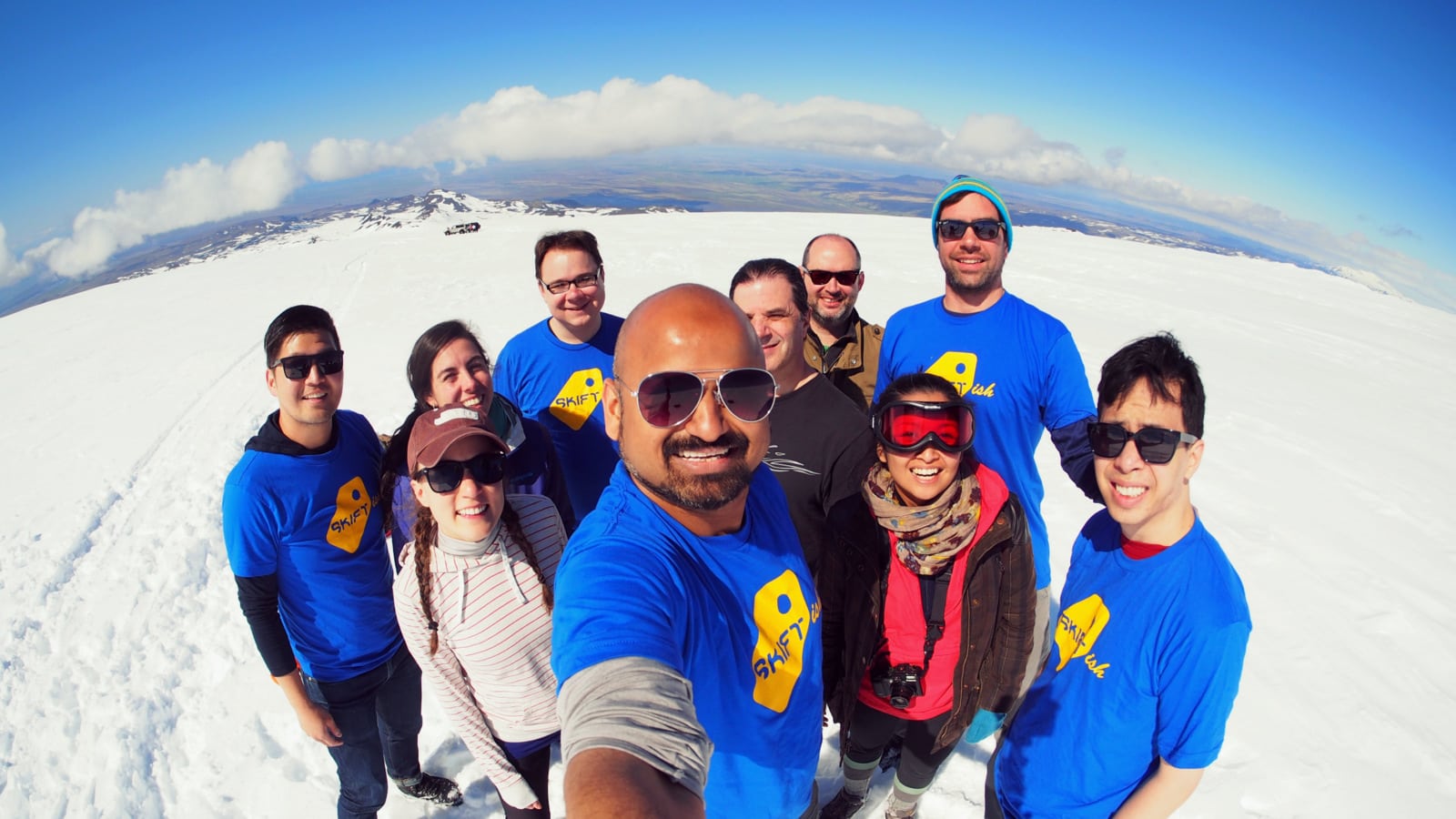The Perfect Place to Learn the Changing Global Trends in Travel

Skift Take
Living and learning about the global megatrends we write about daily on Skift -- that was the main reason why we went to Iceland. It is the perfect crucible for a crash course in the changing global business of leisure travel.
[gallery ids="130386,130375,130575,130562,130373,130566,130565,130368,130387,130577,130381,130380,130379,130388,130564,130396,130563,130397,130390,130393,130374,130389,130391,130403,130576"]
Or why Skift went to Iceland.
Skift is coming up on being two years old in a couple of months. With our team 10 strong now, we went on a rather unusual company offsite, our first ever: Iceland. As startups go, that was probably among the coolest destinations any early stage startup has ever been to, and there were a few reasons why we did it, in addition to the obvious team-building part of it.
One, we're Skift, we're the ones who report on global travel trends (see here, here, here and here, for example), and for us, our first company offsite had to be a cool destination which few other companies as a group had been to.
Second, attracting talent as we grow is a hard and full-time task in a very competitive startup city like New York, and our Iceland trip is indicative of the intense-but-fun culture we're building into the company. We wanted the world to see it play out live, primarily in social media.
But the more interesting reason was to learn about the changing global business of travel. Iceland is the perfect crucible of a lot of global travel trends we cover on a daily basis on Skift, converging in the tiny country in so many ways over the last few years.
I went to Iceland in 2010, a week after the famous Eyjafjallajökull volcano fully stopped, then again in 2012, and now went back in 2014, so I have seen the changes in the country first hand. No one else in our team has, even though we have covered these changes since Skift's start in 2012.
The less obvious part was the larger global travel trends playing out in country where for the first time in its history, tourism is now officially the biggest foreign exchange earner, surpassing its traditional industry of fisheries and aluminium production. Also the first time for in its history, Iceland will likely cross 1 million foreign tourists in 2014 -- more than three times its tiny population of about 320,000 -- growing at a crazy rate of about 20 percent per years for the last three years, and likely higher this year.
We wanted the team to see those changes play out in person, and we got plenty:
Using digital tools to create a whole new

